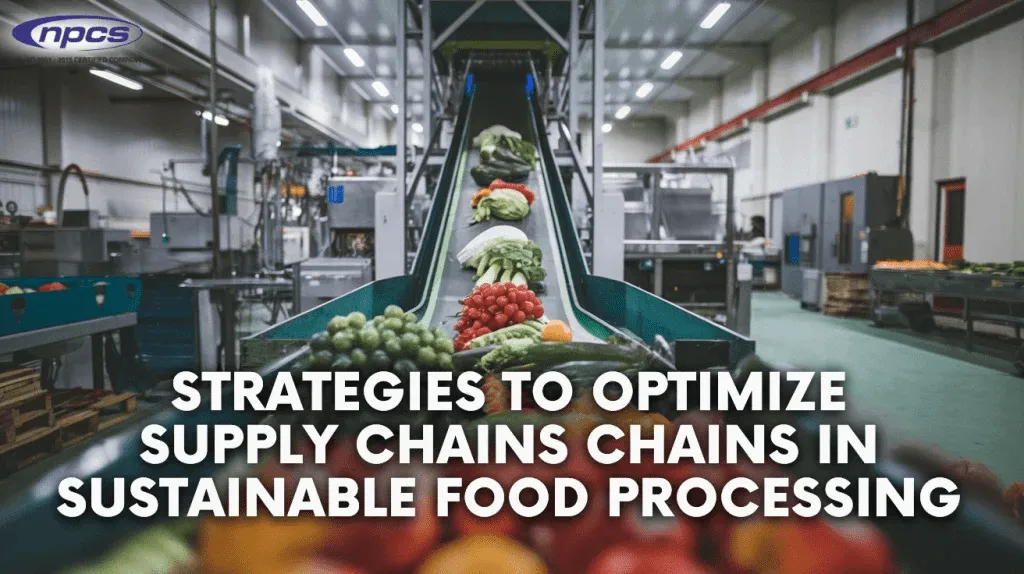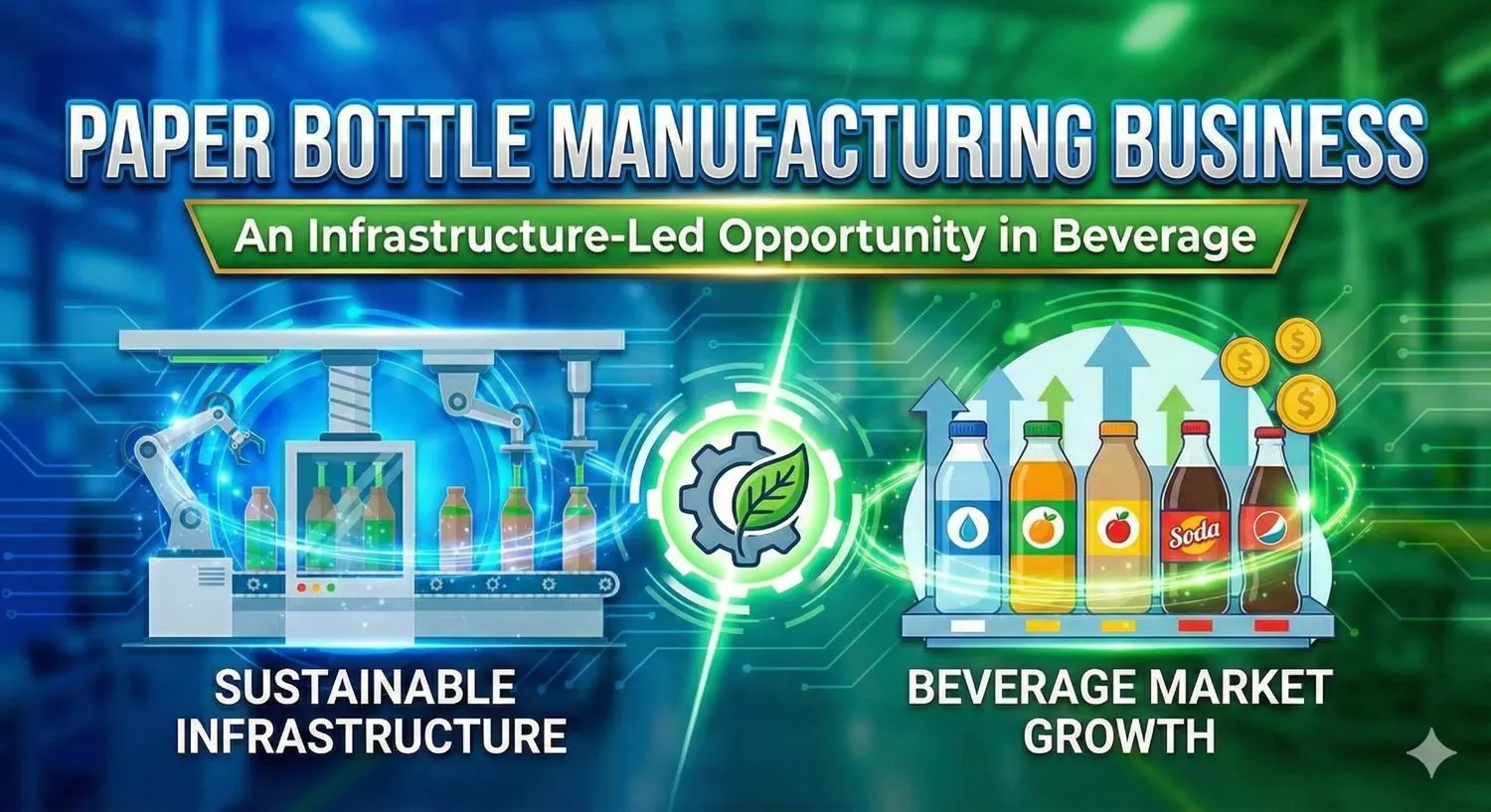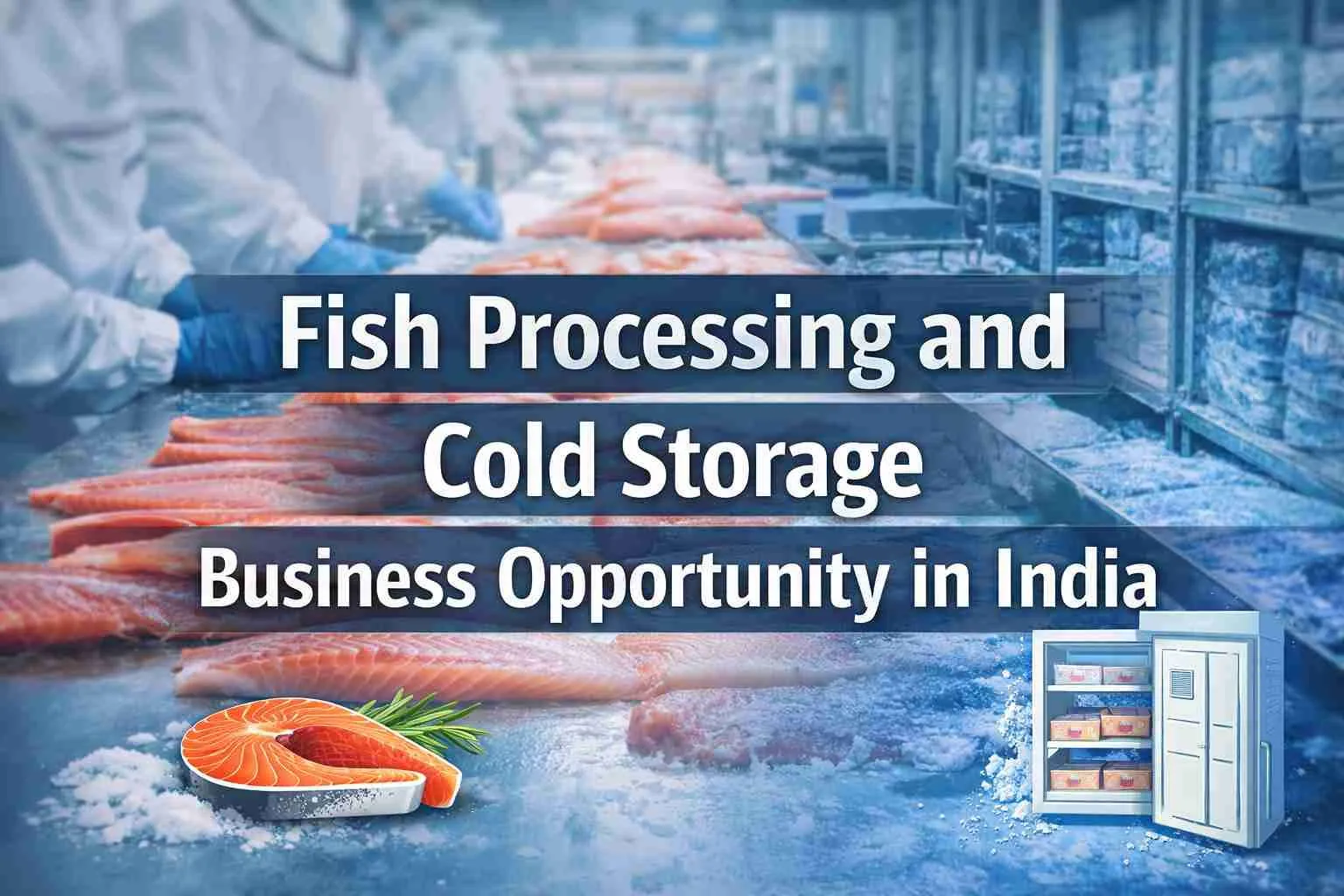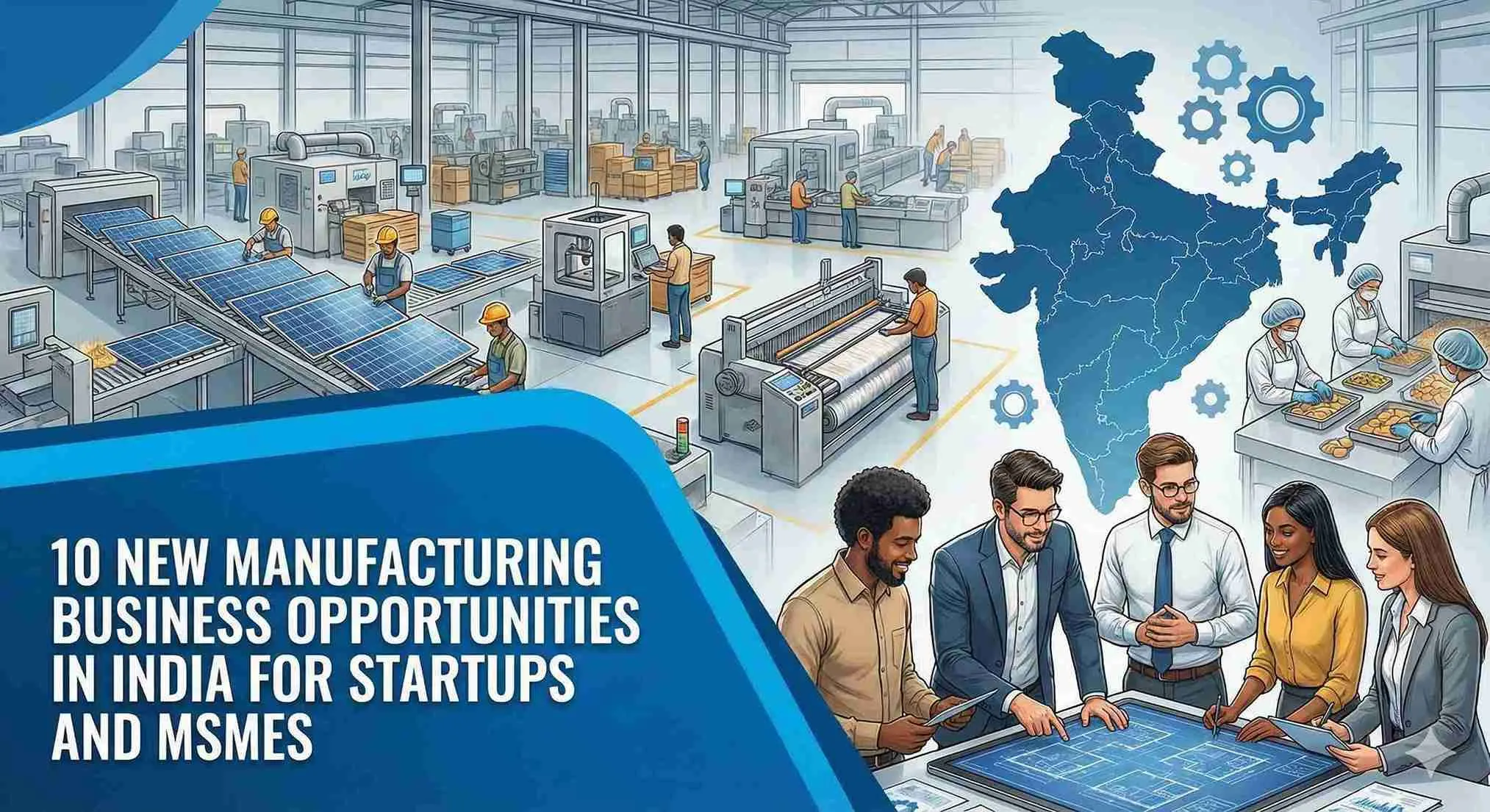In this modern and changing food processing sector, sustainability is not an option anymore; rather, it is a necessity. It incorporates introducing new products by redefining how a product is sourced, manufactured, and delivered in hopes of lessening impact on the environment and increasing efficiency. Supply chain optimization facilitates achieving all these aspects to close the divide between sustainable practices and business profitability. Here is how the food processing industry can deal with challenges in supply chain management in order to promote sustainability.
Contents
- 0.1 Leveraging Technology for Supply Chain Visibility
- 0.1.1 Building a Resilient Supply Chain with Local Sourcing
- 0.1.2 Reducing Food Waste Through Strategic Inventory Management
- 0.1.3 Embracing Renewable Energy in Supply Chain Operations
- 0.1.4 Prioritizing Ethical Labor Practices in Supply Chains
- 0.1.5 Innovating Packaging to Improve Sustainability
- 0.1.6 Conclusion
- 1 Frequently Asked Question
Leveraging Technology for Supply Chain Visibility
One of the most effective means for achieving supply chain optimization is the enhanced visibility across the network. For instance, advanced technologies such as blockchain, the Internet of Things (IoT), and artificial intelligence (AI) may be used by companies in the food processing industry to track every product along the path from farm to fork.
This means that every step along the supply chain is recorded so that the verification of sustainable sourcing may be accomplished and inefficiencies may be detected through the use of blockchain. In addition, IoT devices such as smart sensors provide real-time updates on factors including temperature, location, and handling conditions. It includes critical information for perishable products that guarantee quality and reduce waste. On the other hand, AI-enabled analytics may prevent disruptions, optimize routes, and achieve efficiencies in logistics processes.
Investing in these technologies will create transparency for businesses involved in food processing while at the same time making them trustworthy among consumers demanding sustainable products. Besides this, these innovations can create value in operational efficiency and lower emissions, which will be beneficial both for the world and for profit.
Related Project Reports:
Food Processing Packaging Projects
Building a Resilient Supply Chain with Local Sourcing
The food processing industry tends to lean on global suppliers; it is, however, a very brittle and ecologically costly model of supply chain.
This has found local sourcing to be a great method of supply chain optimization, both in terms of sustainable sourcing and making a supply chain more resilient.
For example, raw materials can be obtained from their geographical locations, thus minimizing the distance of transport. This will in turn bring the carbon footprints down. This will also encourage local economies, have stronger communities, and ethical sourcing. Lastly, local sourcing minimizes risks for countries under disruption from global supply chains, e.g., pandemics, conflicts.
And in making local sourcing optimized, companies would have to link themselves with local growers and cooperatives. Such contacts would be direct, thus ensuring the quality of the product supplied, reliability, democratic practice, and so on. Other ways of getting engaged would be through available businesses in the food processing industry in collaboration with local government or NGOs toward sustainable farming practices.
Such local sourcing supplements an otherwise effective supply chain by providing a long-term anchor for sustainability. NIIR.org provides consultancy and resources on identifying and linking with local suppliers.
Also Read:
Reducing Food Waste Through Strategic Inventory Management
Food waste is a big concern in the food processing industry from both environmental and economic perspectives. Efficient inventory control is the driving force behind reducing wastage and optimizing the supply chain processes.
Just-in-time (JIT) inventory systems reduce overstocking because only as much inventory as needed is available for use. Furthermore, demand forecasting tools powered by AI and machine learning enable companies to get very accurate predictions of the sales’ patterns.
It ensures the production and distribution of the right products and helps in optimizing spoilage and waste at the same time.
Another effective strategy is to supplement those secondary processes with ways of using by-products or surplus in another manner. For instance:
- Protein-rich animal feed can be made from juicing pulp.
- Fruit pulps, or some of the extraction residues, can be transformed into jams.
- Vegetable scraps can be transformed into animal feed or compost.
Also Read:
These principles exemplify the circular economy, as they reduce waste at all levels of the supply chain.
Embracing Renewable Energy in Supply Chain Operations
It is emergent where heavy energy consumption of the food processing industry and emission amounts from production, distribution, and storage are considerable. One might consider the execution of renewable energy sources to make operations more sustainable in the long run in minimizing cost for operational supply chain optimization.
Renewables like solar, wind, and bioenergy can be used to power any facility, transport, and refrigerated cold storage units. For instance:
- Solar panels in processing plants reduce a foreign dependency on fossil fuels.
- Wind farms, whenever built at appropriate places, can generate electricity for supplying logistics hubs.
- Bioenergy from organic waste supports principles in a circular economy.
All these solutions are usually available with government subsidies and tax benefits allowing the industries to save upfront on costs. Renewable energy use reduces carbon emissions and protects operations from exploding fuel prices or resource depletion.
Organizations can also advance their sustainability through collaborations with green logistics providers to make use of energy-efficient carriers like electric or hydrogen-powered trucks. Sustainability will be amplified across the supply chain through such partnerships.
Prioritizing Ethical Labor Practices in Supply Chains
Ethical labor practices are vital in the establishment of a sustainable supply chain in the food and processing industry. It embodies, apart from ensuring compliance with global standards, the means for creating trust for consumers.
Regular audits on supply chains may be conducted by companies to identify and correct various forms of unethical practices. Partnering with suppliers who are holding certifications as Fair Trade, Rainforest Alliance, or Ethical Trading Initiative (ETI) assures compliance with ethical sourcing. These certifications not only ensure better protection of workers but also improve product quality and enhance the brand reputation.
Technology plays roles here as well. Blockchain technology provides an unalterable record of labor practices, whereas AI tools can identify discrepancies in payrolls or working hours as evidence. Ethical practices, therefore, are not just a moral obligation but also serve as a competitive advantage at a time when consumers demand transparency.
Also Read:
Innovating Packaging to Improve Sustainability
Packaging serves important purposes in terms of protecting the products and, at the same time, adds a major contribution to environmental pollution. In the food processing industry, packaging innovation materials and techniques are important steps toward optimization in the supply chain.
Moving towards these sustainable options of packaging would include biodegradable materials, edible films, and reusable containers. Great examples of packaging from agricultural waste, like corn husks or sugarcane fibers, could provide some sturdy and more environmentally friendly options. These innovations would reduce waste as well, as aligned with consumer preference for environmentally responsible products.
Light packing is another option, which decreases the transportation cost and emissions. Another measure is minimal designs that help in cutting down material usage while still ensuring that the product is safe.
There are also schemes for the recycling and returnable packaging. One way is to incentivize users to return empty packaging for points; this would keep materials away from disposals and form part of a circular economy.
Visit this Page for More Information: Start a Business in Food Processing and Agriculture-Based Industry
Conclusion
Food processing industries are keen on providing all that there is, but the above should also factor in an eco-positive system and one that is socially equitable. It should be about bringing the economies of such combinations using advanced technology, local sourcing, renewable energy, ethical labor practices, and sustainable packaging so that better effective supply chain optimization could be achieved.
In reality, the journey towards sustainability is quite troublesome, but the long haul renders far more rewards than the short-term efforts. Investment in such practices would keep companies leagues ahead of competitors in delivering innovation ahead of everyone else while also reducing their impacts on the environment and building long-enduring trust with their consumers.
At NIIR.org, there are fully applicable insights and customized solutions for executing sustainability-related initiatives into your business. These resources and consultancy services can thus help set up your supply chain as a competitive, yet sustainable, advantage.
Contact Us
Frequently Asked Question
What are the major trends shaping the food processing industry by 2026?
Key trends include automation and smart manufacturing, plant-based and alternative proteins, sustainability and waste reduction, cold chain enhancements, and digital traceability from farm to table.
How is technology transforming food processing operations?
Technologies like robotics, IoT sensors, AI analytics, blockchain tracking, and automated quality controls improve efficiency, safety, accuracy, and supply chain transparency.
Why is sustainability important for the food processing industry in 2026?
Sustainability reduces environmental impact, lowers costs through efficient resource use, meets regulatory standards, boosts brand reputation, and caters to eco-conscious consumers.
What opportunities exist for new businesses in the food processing sector?
Opportunities include niche segments like organic and functional foods, plant-based alternatives, cold-pressed products, frozen ready-to-eat meals, nutraceuticals, and outsourced processing services.















